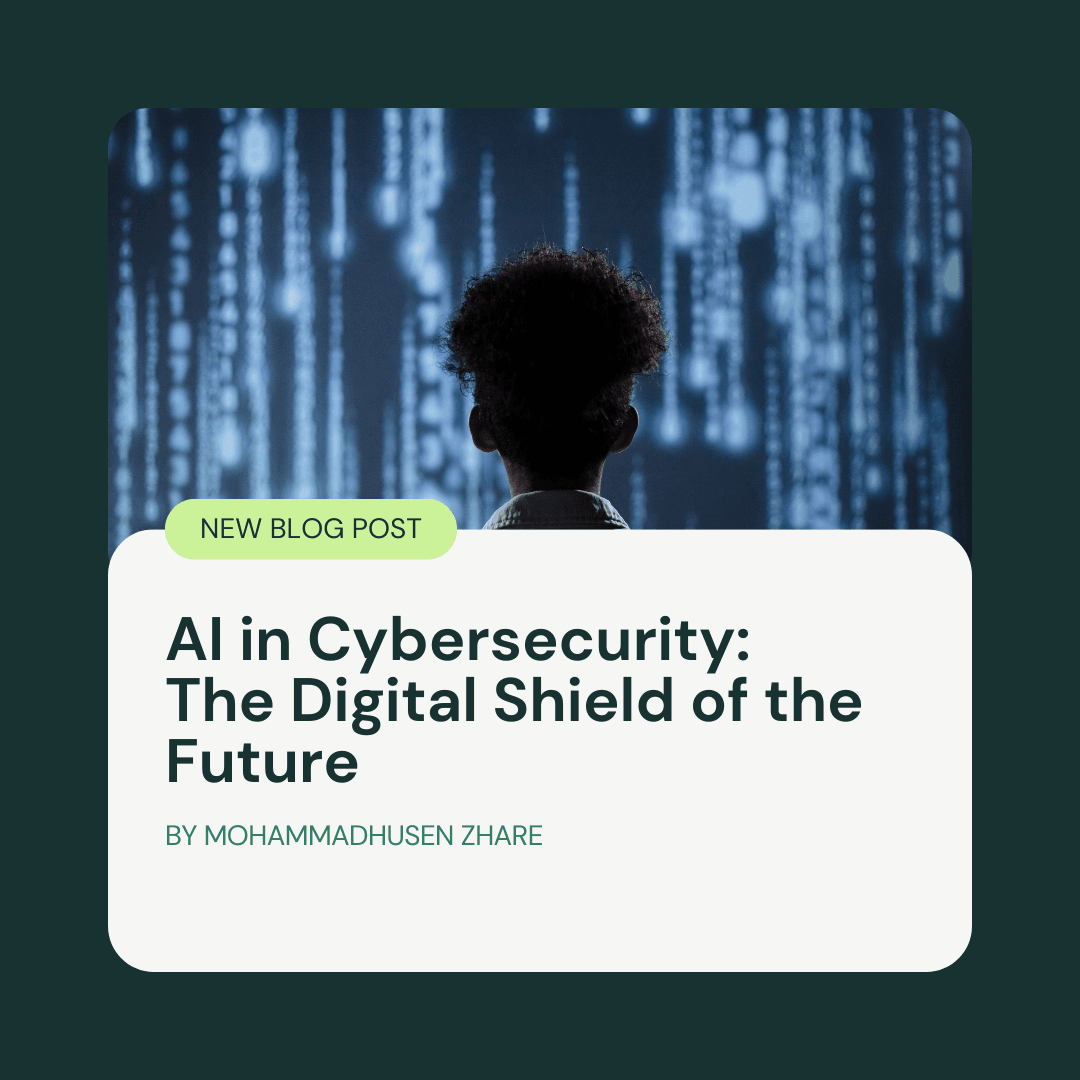
AI in Cybersecurity: The Digital Shield of the Future
As the world becomes more connected, cybersecurity threats are evolving faster than ever. To stay ahead of cybercriminals, ethical hackers and cybersecurity professionals are turning to artificial intelligence (AI) for smarter, quicker, and more effective solutions. AI is transforming the cybersecurity landscape, making it more robust and adaptive to modern threats.
What is AI in Cybersecurity?
Artificial intelligence in cybersecurity refers to the use of machine learning algorithms and intelligent systems to detect, analyze, and respond to cyber threats. AI enables machines to learn patterns, analyze large amounts of data, and make decisions without needing constant human intervention.
How AI is Transforming Cybersecurity
- Real-Time Threat Detection
AI can monitor network activity 24/7, identifying unusual patterns that might signal a cyberattack. This proactive approach can catch threats like ransomware or phishing attempts before they cause harm. - Automated Incident Response
When a breach is detected, AI systems can take immediate action, such as isolating infected devices or blocking malicious IPs. This speed is critical in minimizing damage. - Smarter Vulnerability Scanning
Traditional methods of scanning for vulnerabilities are time-consuming. AI can quickly analyze large codebases or systems, pinpointing weak spots with higher accuracy. - Advanced Threat Hunting
AI-powered tools can sift through vast amounts of data to identify hidden threats that might go unnoticed by human analysts. - Improved Phishing Protection
AI models can detect phishing emails by analyzing subtle patterns, such as unusual email addresses, language inconsistencies, or fraudulent links.
AI vs. Cybercriminals: A Double-Edged Sword
While AI helps ethical hackers and organizations stay secure, cybercriminals are also leveraging AI to create more sophisticated attacks. For example:
- AI-Generated Phishing: Cybercriminals use AI to craft convincing phishing emails that are almost impossible to distinguish from legitimate ones.
- Deepfake Attacks: AI can generate fake audio or video to impersonate individuals, enabling social engineering attacks.
- Automated Hacking: AI tools can automate the process of scanning networks for vulnerabilities, making attacks more frequent and harder to predict.
Challenges of AI in Cybersecurity
- False Positives
AI systems may sometimes flag harmless activities as threats, leading to unnecessary panic or wasted resources. - Dependence on Data
AI models require large datasets to function effectively. Poor-quality data can lead to inaccurate results. - High Costs
Developing and implementing AI-powered systems can be expensive, making it challenging for smaller organizations.
Future of AI in Cybersecurity
The future of AI in cybersecurity looks promising. Here are some trends to watch:
- Predictive Threat Modeling: AI will predict potential attack methods before they occur, allowing organizations to prepare in advance.
- Explainable AI (XAI): New systems will make it easier to understand how AI identifies threats, increasing trust in its decisions.
- Integration with Zero Trust Models: AI will enhance zero trust frameworks, ensuring stricter access controls and reduced risks.
Why Ethical Hackers Should Embrace AI
For ethical hackers, AI is not just a tool but a necessity. As threats grow more advanced, AI-powered tools can help ethical hackers identify vulnerabilities faster and respond to incidents more effectively. By staying ahead of cybercriminals, ethical hackers can ensure a safer digital environment for everyone.
Final Thoughts
AI in cybersecurity is like having a super-intelligent ally in the fight against cybercrime. While it’s not a perfect solution, it’s a game-changer that is already making the digital world a safer place. As ethical hackers and organizations continue to innovate with AI, the future of cybersecurity looks brighter than ever.
For more insights on ethical hacking and cybersecurity, visit HNKCyberSec.com!